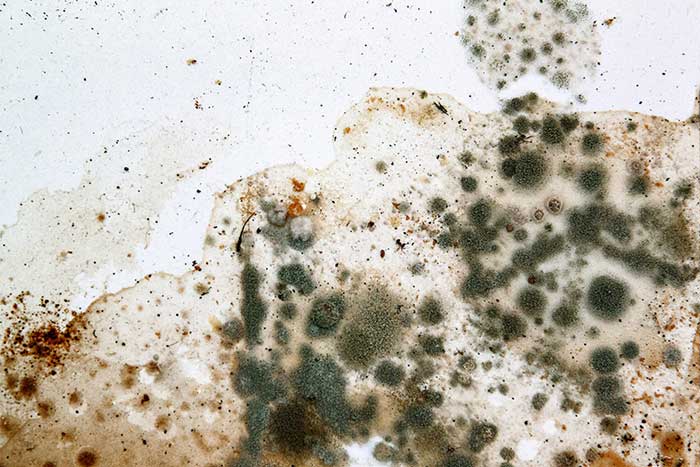Did you know that the American College of Occupational and Environmental Medicine (ACOEM) estimates that approximately 25% of people with pre-existing allergies are also allergic to mold?

But even if you don’t typically struggle with allergies, don’t assume that mold won’t affect you — mold is actually one of the most commonly occurring contaminants, meaning more people may be susceptible to allergenic spores than they realize.
Here’s what you need to know:
The Misery of Mold Allergies
With mold occurring in a number of indoor and outdoor environments — and not always visibly — how might you know if you have a mold allergy? What kind of reactions, specifically, might mold cause?
In short, it will often present similarly to that of hay fever.
“The symptoms of mold allergy are very similar to the symptoms of other allergies, such as sneezing, itching, runny nose, congestion, and dry, scaling skin,” as explained by the Asthma and Allergy Foundation of America (AAFA).
But it doesn’t stop there. When mold spores are inhaled, they not only cause allergic reactions but can worsen existing upper respiratory issues, such as asthma or other lung complications, thereby causing wheezing and/or breathing difficulties.
What Makes Mold So Maddening?
So, we know that mold can cause allergic reactions. But how does it cause such adverse reactions?
Simply put, mold and fungi release microbial toxins — also known as microtoxins or mycotoxins — which can impede the function of one’s immune system. Additionally, these toxins don’t have to be inhaled to affect you.
According to the Environmental Protection Agency (EPA), such allergic reactions to mold toxins can be generated by either inhaling or merely touching mold. What’s more, one’s physical symptoms can be either immediate or delayed, so if you have a mold allergy, you may not even realize it right away.
Mitigating, Managing, and Remediating Mold
While mold allergies can be a result of outdoor mold growth or indoor mold intrusion, professionals are still in the process of identifying which molds, specifically, are the most likely to cause adverse reactions.
“There are hundreds of types of molds, but not all of them are responsible for causing allergy symptoms,” as reported by the American Academy of Allergy, Asthma, and Immunology (AAAAI). “The most common allergy-causing molds include alternaria, aspergillus, cladosporium, and penicillium.”
Regardless, it is always best not to take a chance and to always take immediate action if you suspect (or can see) mold growth within your residential or commercial property.
That’s why ServiceMaster Restoration of First Coast offers certified mold remediation services — because your health and safety are our priority! Not only will we clean and remediate your space, but we will also identify contaminated furniture and materials so that they may be disposed of properly, thereby curbing further mold growth and exposure.
To learn more about our services or schedule an appointment with our expert team, contact us today by calling (904) 219-0635!
